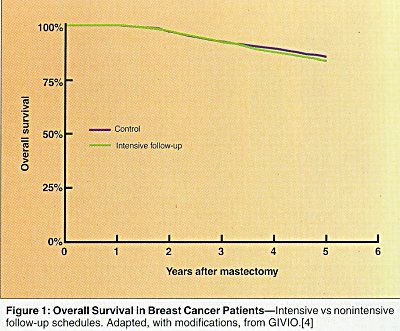Helping Brain Tumor Patients Cope With Cognitive Changes
NEW YORK-The cognitive and behavioral effects of brain tumors and their treatment are often invisible to patients, caregivers, and even clinicians, Robert A. Stern, PhD, said at a Cancer Care, Inc. teleconference for patients and their families. Dr. Stern is director of the Neuropsychology Program, Rhode Island Hospital, and associate professor of psychiatry and neurology, Brown University School of Medicine.
NEW YORKThe cognitive and behavioral effects of brain tumors and their treatment are often invisible to patients, caregivers, and even clinicians, Robert A. Stern, PhD, said at a Cancer Care, Inc. teleconference for patients and their families. Dr. Stern is director of the Neuropsychology Program, Rhode Island Hospital, and associate professor of psychiatry and neurology, Brown University School of Medicine.
He urged patients and caregivers to ask their physicians for referrals to specialists who can evaluate their cognitive and emotional status following treatment for a brain tumor.
The most important thing to realize, he said, is that brain tumors and their treatments, including radiation and chemotherapy, are commonly associated with alterations of cognitive and behavioral functioning.

These may include changes in personality and problems in organization, the ability to juggle more than one thing at a time, concentration, language, abstract thinking, movement, facial expressions, memory, emotional functioning, and how the patient relates to others.
Often the patients doesnt complain about any of these difficulties, Dr. Stern said. To those who are interacting with the patient, it may seem like denial or some type of defense mechanism, but with brain tumors, the brain damage can cause patients not even to be aware of their neurological problems.
Without special training and experience in the assessment of these cognitive and behavior changes, a physician may quickly examine all of these areas and still miss the deficits. The fact that the individual is alive, walking, and talking may be considered enough of a success, he said, but the remaining person is not the same.
Dr. Stern urged caregivers to ask the patients treating physician for a referral to a neuropsychologist for an evaluation. The evaluation, which can take anywhere from 3 to 5 hours, will indicate the relationship between the brain damage and behavior.
Once specific neuropsychological strengths and weaknesses are determined, an individual treatment plan can be developed. The goal of any cognitive rehabilitation treatment, Dr. Stern said, is to exploit the intact areas of functioning.
Among those who can provide cognitive rehabilitation are neuropsychologists, occupational therapists, and speech therapists, he said.
Depression and Anxiety
Brain tumor patients may also experience anxiety, aggression, and even delusions or paranoia associated with the brain tumor. Depression in brain tumor patients is often directly related to the damage caused by the tumor and the treatment, Dr. Stern explained.
Neuropsychiatristsphysicians with special training and experience in the psychiatric manifestations of neurological disordersmay treat this type of depression as well as other emotional difficulties arising from brain damage with medication. Neuropsychologists may provide psychotherapy and counseling, as well as cognitive rehabilitation.
Dr. Stern warned that insurance companies, although they may pay for neuropsychological evaluations, may, at first, refuse to pay for cognitive rehabilitation and other forms of therapy. My recommendation is, dont give up. Make demands. Ask to speak to a supervisor. Explain that there is no reason why someone should be left without treatment.